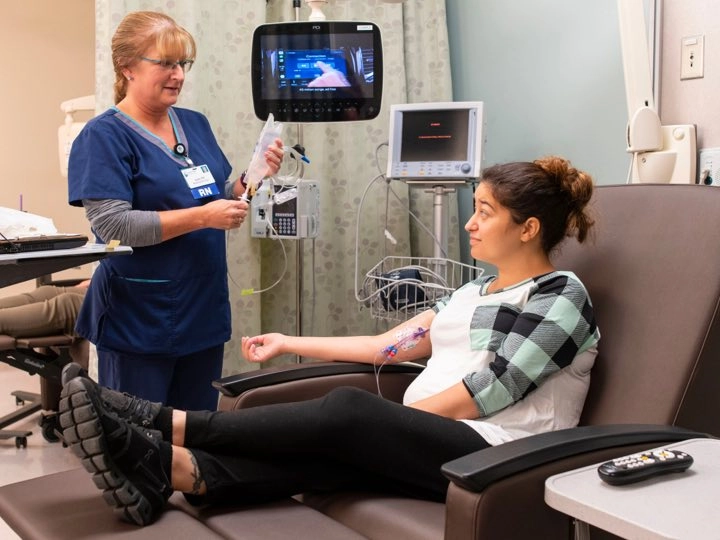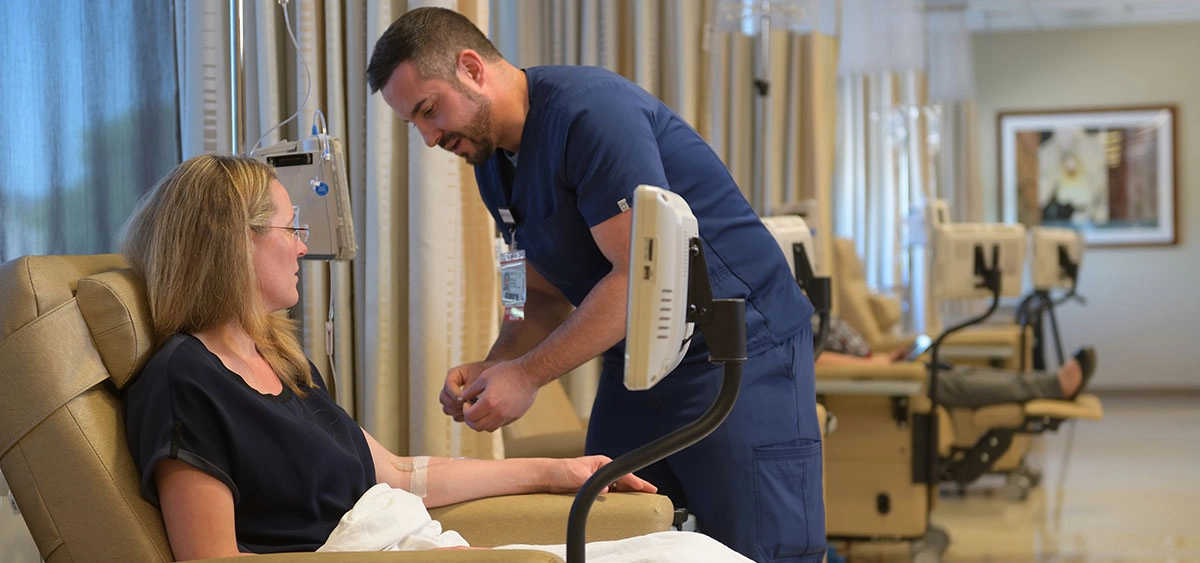Crohn's disease Infusion Therapy
Crohn's disease is a lifelong gut problem. It causes pain and swelling in your digestive system. You might get bad tummy aches and runny poo a lot. Feeling very tired is common too. Doctors don't know exactly why some people get it. There's no cure, but medicines can help you feel better. Some people need to change what they eat. In tough cases, surgery might be needed. Living with Crohn's can be hard, but most people learn to manage it. Good days and bad days are normal with this illness. With the right care, many people with Crohn's still live full lives.

Symptoms

Symptoms
Here's a list of common symptoms of Crohn's disease:
- Abdominal pain and cramping
- Persistent diarrhea
- Rectal bleeding
- Fatigue
- Weight loss
- Reduced appetite
- Fever
- Anemia
- Mouth sores
- Perianal disease (fistulas or abscesses near the anus)
It's important to note that symptoms can vary widely between individuals and may range from mild to severe.

Treatment Options
Here are the main treatment options for someone with Crohn's disease:
- Medications:
- Anti-inflammatory drugs (e.g., corticosteroids, aminosalicylates)
- Immunosuppressants (e.g., azathioprine, methotrexate)
- Biologics (e.g., infliximab, adalimumab)
- Antibiotics
- Antidiarrheal agents
- Nutritional support:
- Dietary changes
- Nutritional supplements
- Enteral nutrition (liquid diets)
- Surgery:
- Strictureplasty (widening narrowed sections)
- Resection (removing damaged portions)
- Fistula repair
- Lifestyle modifications:
- Stress management
- Regular exercise
- Smoking cessation

Living with Crohn's
Living with Crohn's disease means adapting to a new normal. You'll need to manage your diet carefully, avoiding trigger foods and eating smaller meals. Taking medications as prescribed is crucial for controlling symptoms. Stress management through relaxation techniques and exercise can help reduce flare-ups. Regular check-ups with your doctor are important to monitor your condition. You'll learn to track your symptoms and communicate changes to your healthcare team. Daily life may require some adjustments, like planning outings around bathroom access. Building a strong support system, including joining support groups, can provide emotional relief. Prioritizing overall health through good sleep, avoiding smoking, and limiting alcohol is beneficial. It's also wise to have a plan for handling sudden flare-ups. While challenging at times, many people with Crohn's lead full, active lives by effectively managing their condition.
Meet our Infusion Specialists
Jalal Thwainey M.D.
Medical Director
Emilie Wojcik, N.P.
Director of Clinical Services
For Provider
Simplify patient referrals and offer advanced treatment options with our infusion partnership program.
For Patient
There may be a better way to manage your condition – explore infusion therapy.





